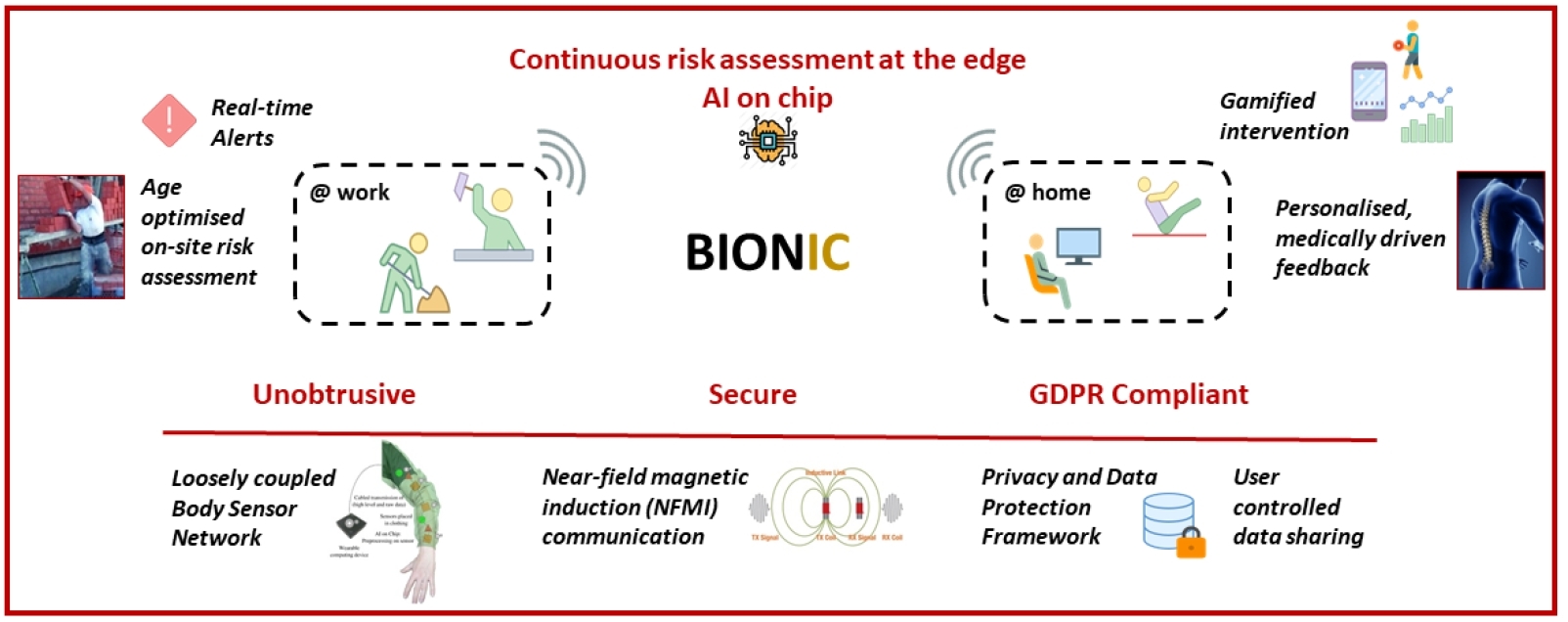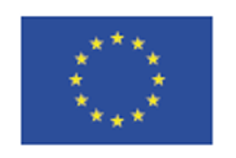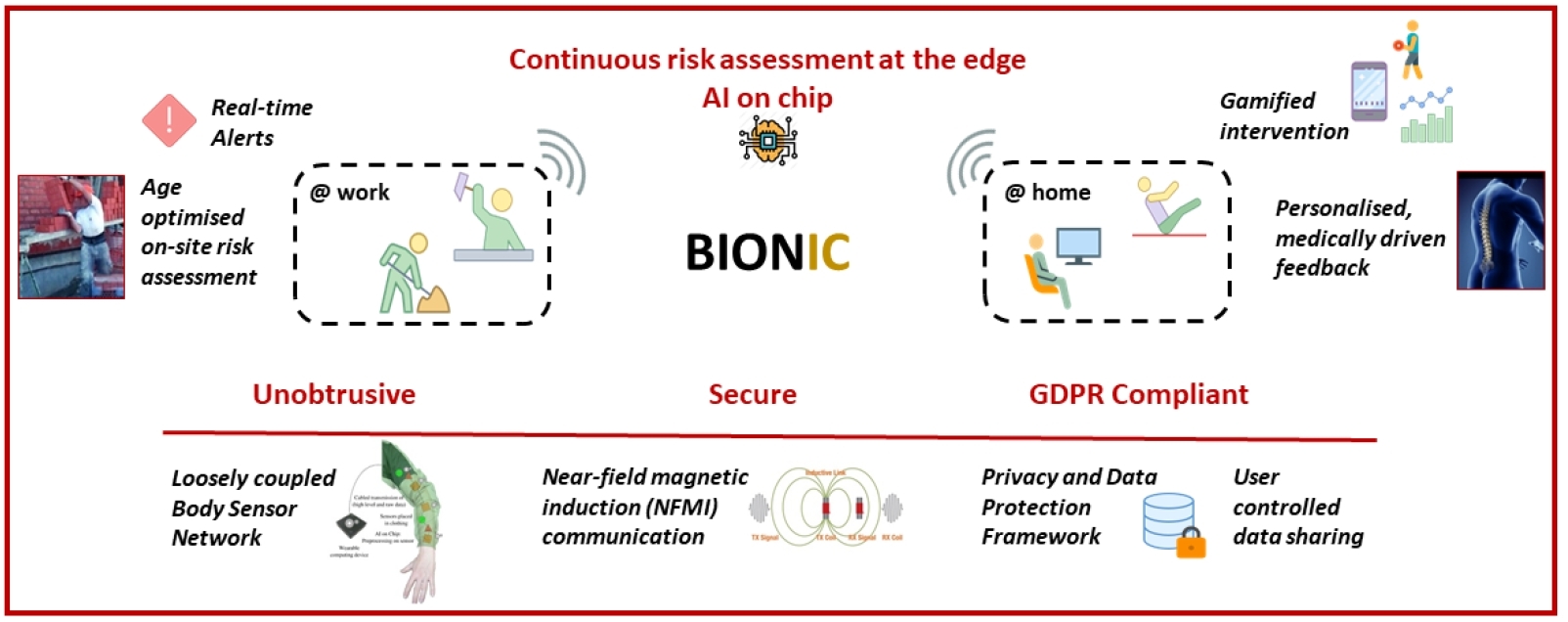
Personalised Body Sensor Networks with Built-In Intelligence for Real-Time Risk Assessment and Coaching of Ageing workers, in all types of working and living environments
Objetivos
The BIONIC concept will be a game changer in medical wearable technology integrating sensor modules in multi-purpose, configurable Body Sensor Networks (BSNs) introducing key enablers of user acceptance based on value, comfort, confidence and trust.

The overall objective is to develop a holistic, unobtrusive, autonomous and privacy preserving platform for real-time risk alerting and continuous persuasive coaching, enabling the design of workplace interventions adapted to the needs and fitness levels of specific ageing workforce. Gamification strategies adapted to the needs and wishes of the elderly workers will ensure optimal engagement for prevention and self management of musculoskeletal health in any working/living environment.
Empresas colaboradoras
Sector:Health in the workplace
Coordinator:
DEUTSCHES FORSCHUNGSZENTRUM FUR KUNSTLICHE INTELLIGENZ GMBH (Germany)
Partners:
TECHNISCHE UNIVERSITAET KAISERSLAUTERN (Germany)
ROESSINGH RESEARCH AND DEVELOPMENT BV (Netherlands)
UNIVERSITY OF PIRAEUS RESEARCH CENTER (Greece)
INTERACTIVE WEAR AG (Germany)
HYPERCLIQ IKE (Greece)
ACCIONA CONSTRUCCION S.A. (Spain)
ROLLS ROYCE POWER SYSTEMS AG (Germany)
BUNDESANSTALT FUER ARBEITSSCHUTZ UND ARBEITSMEDIZIN (Germany)
FUNDACION LABORAL DE LA CONSTRUCCION (Spain)
INSTITUTO DE BIOMECÁNICA - IBV (Spain)
Duración y referencia
Fecha de inicio: 01-04-2019
Fecha de finalización: 30-12-2022
Referencia del proyecto: 826304



